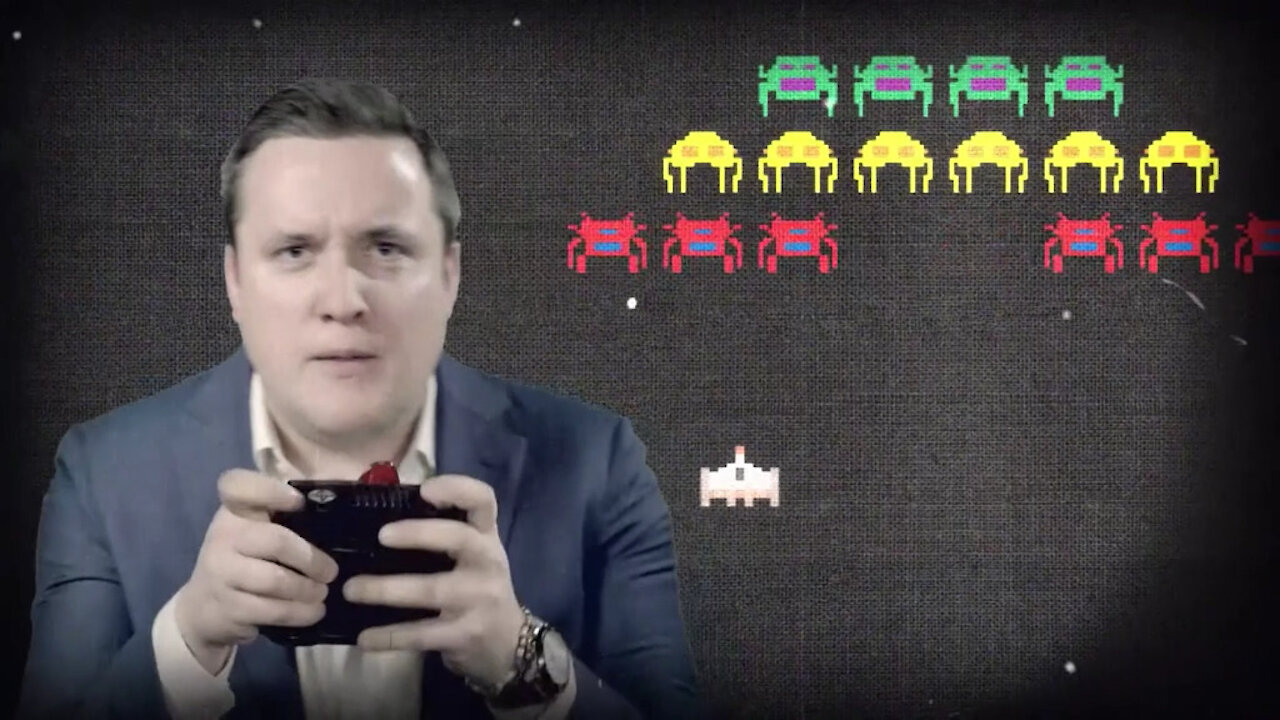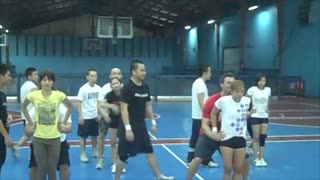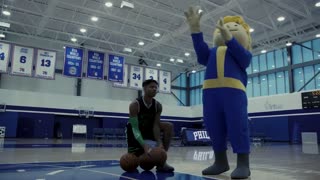Premium Only Content

Training by gaming (master with subs)
NATO Science: Training by gaming (master with subs)
Credit: Courtesy | Date Taken: 02/14/2020
SYNOPSIS In the future, threats could come from all sides: disinformation, urban warfare, cyber attacks, civil unrest, robots, drones, and even augmented humans. It’s NATO’s job to imagine every possible threat and plan how to best protect our populations. Gamification can be a valuable tool in getting people to ask questions they haven’t asked before. The combination of competition, excitement and fun is crucial when training the next generation of security specialists. Through its Science and Technology Organization, NATO is working with cognitive and behavioural scientists at Atılım University in Turkey to set up simulations – from board games to future games in virtual reality – that hit the perfect pitch of learning and creativity. In the end, the knowledge and experience gained from these games will help NATO and Allied leaders make better-informed decisions on defence matters. Footage includes shots of live game and interview with cognitive scientist Berke Çaplı. SHOTLIST SOUNDBITE (ENGLISH) Dylan White “You win again, extra-terrestrial beast! Games are just a fun way to waste time, right? Not necessarily. Playing games could lead to new ways to combat modern threats. That’s what we’re looking at today in NATO Science.” TEXT ON SCREEN THE NORTH ATLANTIC TREATY ORGANIZATION Presents NATO SCIENCE TRAINING BY GAMING WITH DYLAN P. WHITE ANKARA Project: Gamification of Cyber Defence/Resilience Participants: Turkey, Germany, Netherlands, United Kingdom, United States Supported by the NATO Science and Technology Organization’s System Analysis and Studies Panel SOUNDBITE (ENGLISH) Dylan White “Around the world, people spend billions of hours a week playing games. But what if, rather than playing games aimlessly, we could divert this time and effort into solving security problems? Our scientist in Ankara has more.” TEXT ON SCREEN Berke Çaplı Defence education enhancement expert, Atılım University, Turkey SOUNDBITE (ENGLISH) Berke Çaplı, Defence education enhancement expert, Atılım University I always remember a military trainer telling me, “I have students playing Fortnite and I’m trying to train them using PowerPoint.” We use games at NATO to play through different scenarios. In the future, threats could come from all sides – disinformation, urban warfare, cyber attacks, civil unrest, robots, drones, even augmented humans! Using games helps us imagine these scenarios. SOUNDBITE (ENGLISH) Dylan White The game is on! But how does it work? SOUNDBITE (ENGLISH) Berke Çaplı, Defence education enhancement expert, Atilim University We give our teams a problem and assign them different roles. Red team are hostile forces, green are the legitimate government, blue is NATO, yellow might be other non-governmental factors like aid workers or displaced people. Imagine a megacity of 10 million people, divided into zones based on ethnicity. A hostile country uses those divisions as an excuse to capture the city’s port, which is a lifeline to the citizens. But the hostile country doesn’t use regular troops, they use unmarked paramilitary forces. Whatever methods NATO might use to stabilise that crisis – cyber, information or kinetic – will have consequences for the population. A facilitator watching the game runs up a software that uses an algorithm that predicts the effects of each action. A riot? One point up the crisis metre. An epidemic? Another point. If the crisis metre runs too high, NATO loses. The game is designed not to be won, but rather to manage the crisis and restore stability, which is one of NATO’s core tasks. But the game isn’t the interesting part, it’s the people who are playing it. Where the science comes in is that we observe cognitive reactions. Although NATO is a consensus-based organisation, we want argument. It is what we call “matrix gaming”. NATO needs people asking questions they haven’t asked before, because these might be the questions that we need to answer to keep peace and security in the future. SOUNDBITE (ENGLISH) Dylan White Next episode we’ll take you to Florence in Italy to meet a robot taking the lead in the fight against landmines. Check out the rest of the videos in the series to learn more about NATO science. TEXT ON SCREEN FLORENCE ANKARA
-
 1:06
1:06
ncwatts
4 years agoTraining with dad
126 -
 1:13
1:13
cooplinds
4 years agoGaming Computer with RGB Fans
531 -
 15:36
15:36
Effing Simple
4 years ago $0.05 earnedINSTAGRAM TRAINING with Rose - @fabulousinmy50s
68 -
 1:23
1:23
Plumbline Ministries Brian Fenimore
4 years agoGrow With Plumbline Training Institute
104 -
 0:08
0:08
jeffreytham
4 years agoMSI Gaming X Trio 3070 with lianli case
131 -
 0:33
0:33
Fatboy420
4 years agoBout done with training
30 -
 18:39
18:39
The Executive Housekeeper101
4 years ago $0.01 earnedHousekeeping Training - Chemicals with Benefits
49 -
 3:03
3:03
NCC Philippines
4 years agoJim Slattery first training session with NCC
28 -
 0:35
0:35
johnson2
4 years agoFallout 76 - Wasteland Training with Markelle Fultz Trailer
2 -
 2:34
2:34
LexingtonRoute
4 years agoXena impulse control training with a hamburger
19